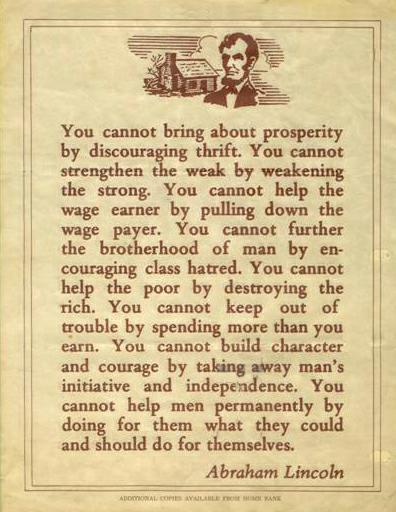....well not really. Maybe I'd just prefer to get divorced, work, and raise my child myself.
No, wait, I wouldn't want to do that either. That would suck. According to
an article in Jezebel though, my feelings on that put me in the minority of women: "Most Women Would Rather Kick Their Husband to the Curb Than Be a Housewife" the headline blares.
Seriously? That doesn't even sound remotely correct.
This assertion, which is based on
this article, is apparently based on a statement in
this book "The Unfinished Revolution" by Kathleen Gerson. From the article:
80% of women and 70% of men when asked say that they would prefer an egalitarian marriage where the partners share responsibility for housework, taking care of children and breadwinning.
....Unfortunately, an egalitarian marriage sometimes works more in theory than it does in practice (especially when kids are involved), so Gerson also asked her subjects what kind of family they'd prefer if an equal partnership became impossible. For the most part, men resolved themselves to a traditional division of labor with 70% of them saying that they would hope to convince their wives to give up their careers and focus on homemaking.
The majority of women on the other hand — nearly 75% — say that they would rather divorce their partners, continue to work and raise their children alone than become a housewife.
That's some strong language right there. But seriously....75% would seek divorce? Here's the graph:
So, the first thing I noticed is that the chart isn't labeled "divorce" but rather "self reliant". This made me suspicious, so I took a look around. Well, I did a little digging, and there's a few things that weren't really made clear here. In
this review of the book, it's explained that all of this data is based on interviews with 120 young people (average age 24)....so presumably most of them (if not all) are currently unmarried. So that means that women were not answering "if the man you're married to right now wanted you to stay home what would you do?" but rather "if you couldn't get the hypothetical you wanted, what would be your next preference for a hypothetical choice?". That's why the data is labeled "self-reliant" as opposed to "get a divorce". There is no divorce. There is no marriage.
In fact, here's what the reviewer said about women's answers to this question:
If equality is difficult to attain, most women would rather secure social and economic autonomy through a paid job than fall back into a neo-traditional relationship. Their self-reliant strategies include: seeking a position in the workplace; postponing marriage; considering marriage as optional and reversible, redesigning motherhood by postponing parenthood; separating marriage and motherhood; and, becoming a provider as well as a caretaker.
Certainly "viewing marriage as optional and reversible" points to divorce, but there's a few other options there.
At the end of the day though, I'm not sure I would take the musing of a few college students as gospel over what they would decide in the real world. I think it's really easy to say you'd never pick staying at home with your child over a career when the child (and the father) are both hypothetical....but once you've got an actual smiling, laughing adorable baby in your arms, I'm guessing staying home wouldn't actually seem like such a terrible fate. I mean, I've got a pretty fantastic job that I've worked hard for, but if I got laid off tomorrow I'm sure the munchkin and I could find a million ways to have a good time.
Still though, they weren't responding "what if you got laid off", they were responding to "what if you couldn't find anyone to have an equal relationship with?" or "what if you married someone who you thought would split things equally with you and he didn't?".
For the men respondents, I'm also confused why this got skewed this way. It never clarifies if equality was hard to obtain because of circumstances, or
because their wife asked to stay home. These are men who said they wanted something egalitarian. If that didn't work out for them, it means it was beyond their control. They're not asking their wife to stay home in a vacuum, they're either responding to her request or an external pressure. Sexism isn't at play here,
because we already determined that's not what they want.
This all of course misses the point that marriages with a stay at home mother can be egalitarian. I've
touched on this before, but there's a lot of stats that show that many women would rather work part time or stay at home, especially when the kids are young. Reverting to a male breadwinner setup during those years is likely a mutual decision.
Anyway, I think studies about aspirations are great, but they should be kept in context. Life gets messy. People make trade offs. Sometimes life only offers you mediocre options, and you just make it work. You can't always know what you'd do ahead of time, and that's okay. Aspirations studies say more about the way we presume life works than the way it actually does.






.jpeg/220px-Bernoulli_Nicolaus(II).jpeg)
